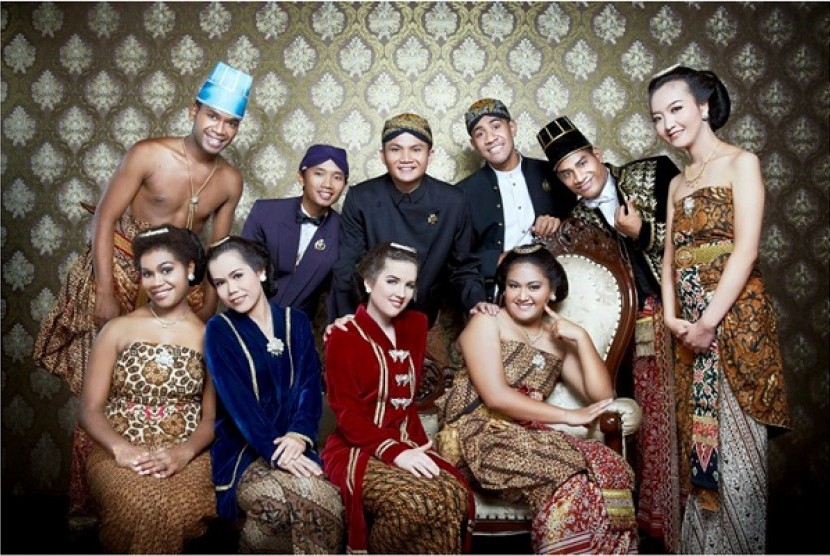Anybody interested to know and learn Indonesian culture? This fellowship might be the answer, Beasiswa Seni dan Budaya Indonesia (Fellowship in Indonesian art and culture –Ed).
Provided by Indonesian government, the regular fellowship lasts for three months in Indonesia and the selection process is held every year. The participants actively engage in learning Indonesian language including its art and culture, interaction with local society, visit some cultural sites, and involving in local activities.
The 2012 batch started on April 3 and was followed by 50 participants from 37 countries. Those participants were divided into five groups, some went to Sanggar Saung Udjo in Bandung (West Java), while some others went to Sanggar Soeryo Soemirat in Solo (Central Java), Sanggar Tydiff in Surabaya (East Java), Sanggar Smarandana in Denpasar (Bali), Rumah Budaya Rumata’ in Makassar (South Sulawesi).
“Many participants now can speak bahasa Indonesia (Indonesian language -Ed), while some others still shy,” Kusuma Habir, Director of Public Diplomacy at the Ministry of Foreign Affairs, said recently.
Not only the language, they also learn some Indonesian traditional dances and play traditional musical instrument such as angklung (made of bamboo) from West Java. The participants -dubbed as “Friends of Indonesia”- are now gathering in Solo and ready to perform on July 14 with the theme, “Arts and culture for everlasting friendship”. The event is expected to draw about 5,000 spectators who can enjoy foreigners perform Indonesian dances or musical instruments. Wow… cannot wait!
Apart from the regular BSBI, the fellowship also is also provided a special program. This year special program is titled Future Religious Leaders and followed 15 participants from 11 countries. The program follows the earlier event, Regional Interfaith Dialogue which is held in February in Semarang, Central Java.
Asked what kind of challenges faced by BSBI participants in general, Habir explained, “Mostly food because once they arrived in Indonesia they must learn to eat Indonesian food. Some others feel homesick, but in the end many participants consider Indonesia as their second home.”


